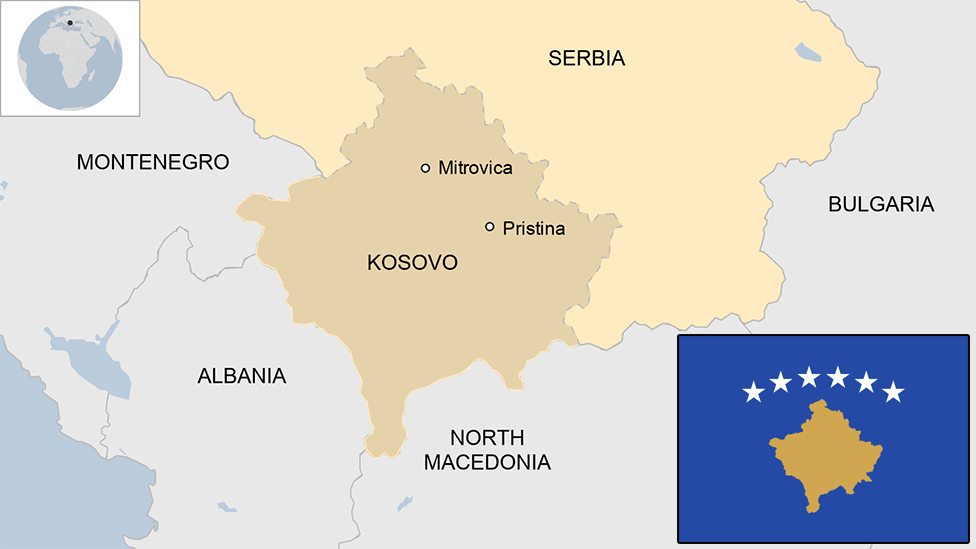Kosovo protests as police target opposition MP Kurti
- Published
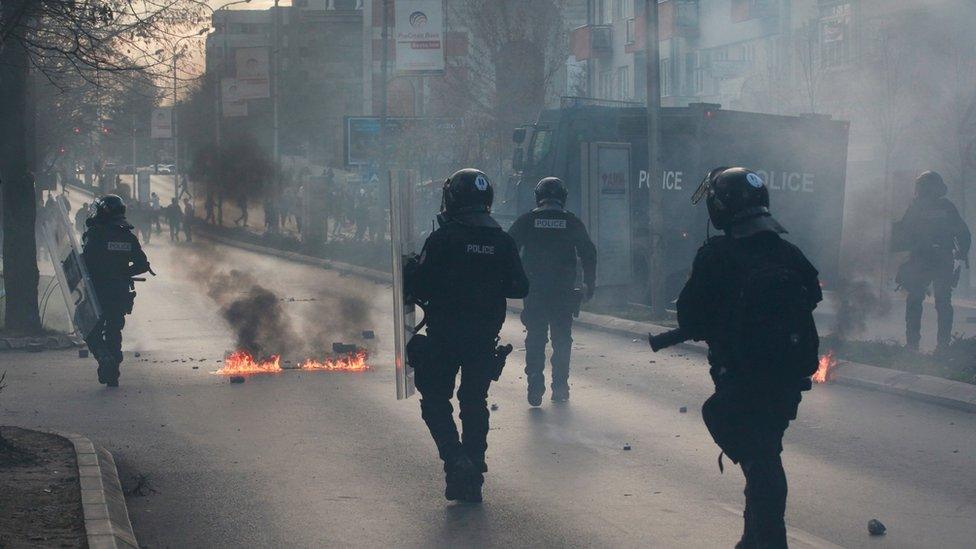
Opposition MPs and their supporters are in a weeks-long protest against agreements with Serbia
Kosovo police have used tear gas to disperse protesters objecting to arrest warrants issued for opposition MPs.
Police tried to arrest opposition MP Albin Kurti, who has led a series of protests in parliament against agreements made with Serbia.
Mr Kurti was reportedly not at home when masked police entered his flat in the capital Pristina on Wednesday.
Another opposition MP, Donika Kadaj-Bujupi, was arrested for letting off tear gas in parliament.
Scores of opposition supporters gathered in front of the government headquarters in downtown Pristina for a second day, throwing stones and paint at the building.
Police arrested at least 13 protesters, the AFP news agency reported.
A grenade also went off outside the constitutional court in Pristina as the raid on Mr Kurti's flat took place.
But there was no confirmation that the explosion, described by police as "controlled", was connected.
For weeks, Mr Kurti, a former leader of the Self-Determination Party, has spearheaded opposition to a deal with Serbia, mediated by the EU in August, external, that hands greater autonomy to Kosovo's ethnic Serb minority.
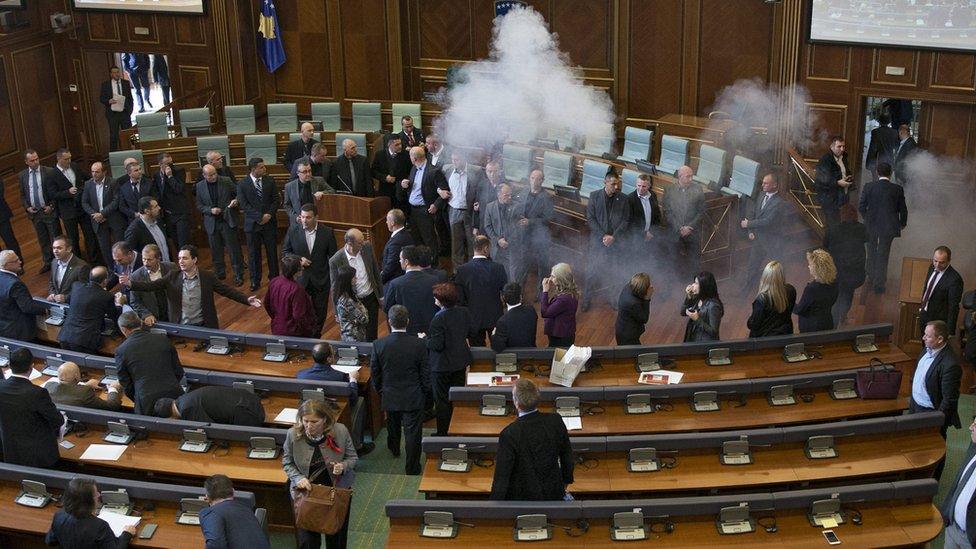
Tear gas and pepper spray were let off in parliament on Tuesday
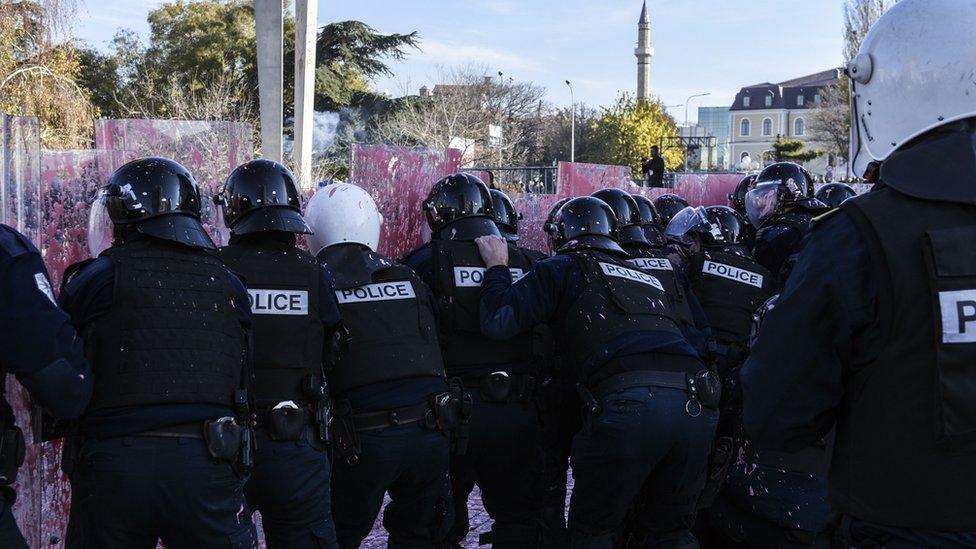
Meanwhile, paint, stones and petrol bombs were hurled at police outside
The opposition also objects to a border demarcation deal with Montenegro that it says hands Kosovan territory to its neighbour.
Police spokesperson Baki Kelani told reporters on Wednesday that they were "acting upon four detention warrants from the public prosecutor for four MPs".
He said one - Ms Kadaj-Bujupi - had been detained "while we are still looking for three others".
Kosovo, which has an ethnic Albanian majority, declared independence from Serbia in 2008 but has never been recognised by the Belgrade government.
The split came a decade after a conflict between Serb forces and Kosovan Albanian rebels. A Nato bombing campaign against Belgrade in effect forced Serbia to cede the state.
The constitutional court in Pristina last week suspended for two months the government's deal providing greater power to Serb-run municipalities pending a review. But the opposition sees the court as too close to the government.
Seven people, most of them police, were hurt during protests outside the Kosovo parliament on Tuesday. Petrol bombs and stones were thrown outside the building as pepper spray and tear gas were sprayed inside the chamber.
The violence broke out as King Abdullah of Jordan was on a visit to Kosovo.
- Published13 October 2015
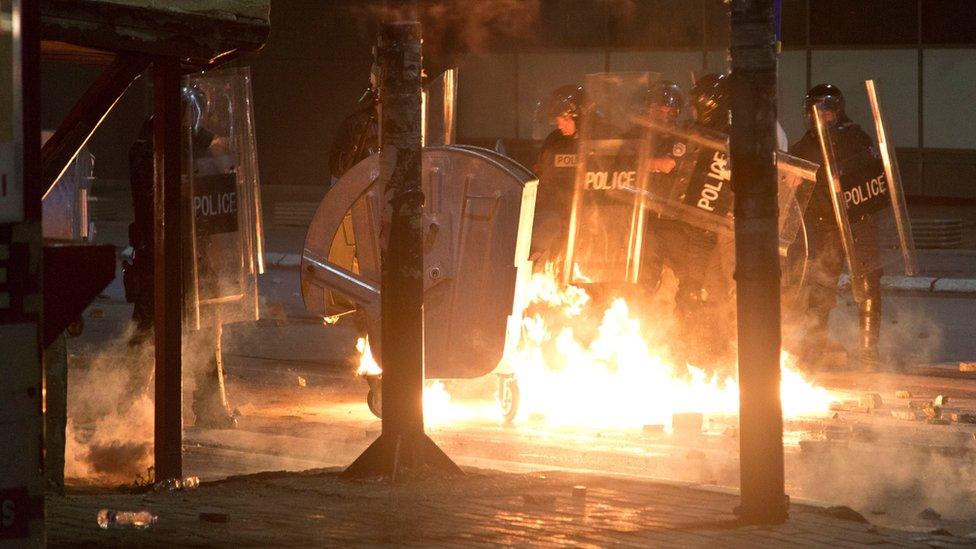
- Published26 August 2015
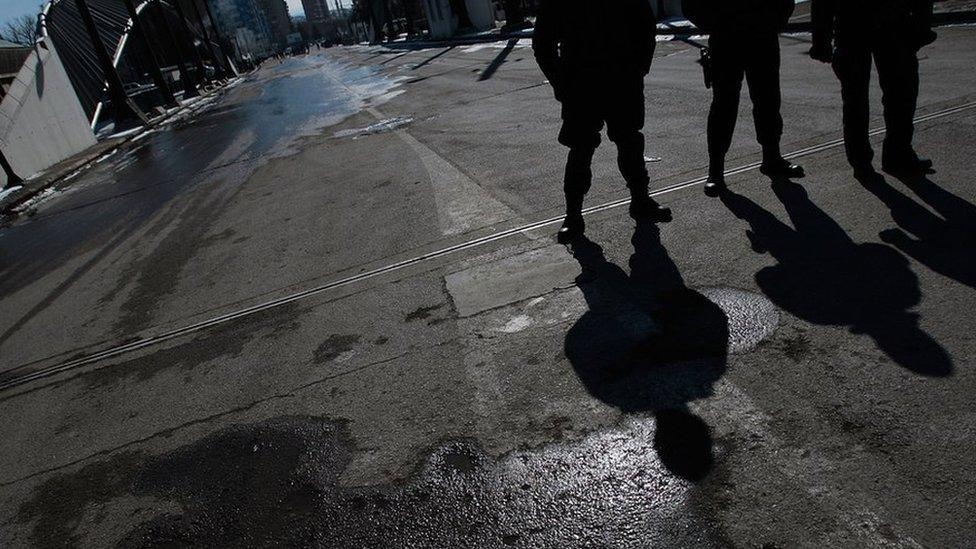
- Published28 June 2023
